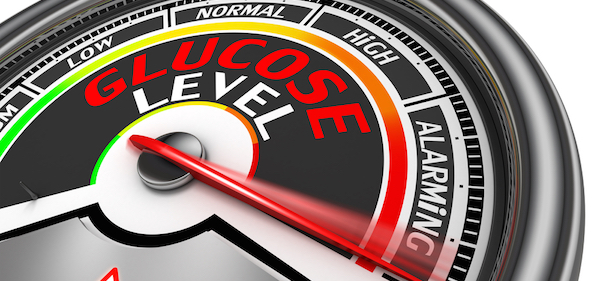According to Diabetes Australia, type 2 diabetes is the fastest growing chronic condition in Australia, with almost one million Australians currently diagnosed. By 2031, it is estimated that 3.3 million Australians will have type 2 diabetes.
So, with this week being National Diabetes Week, we have seven natural ways to help reduce your blood sugar.
1. Eat certain food groups first
A small study has suggested that the order in which people with type 2 diabetes eat their food can affect their blood sugar levels. The study of 11 people showed that when protein, vegetables and fat were eaten first, with carbohydrates 15 minutes later, the participants’ blood sugar levels were about 29 per cent lower after 30 minutes, 37 per cent lower after 60 minutes and 17 per cent lower after two hours. Insulin levels were also much lower when people had protein and vegetables first.
Read more at Philly.com
2. Reduce your carb load
Carbohydrates are found in starchy foods –e.g. root vegetables, grains, rice and legumes – and all of their processed versions, such as bread, pasta, hot chips, cakes, biscuits and pastries. So it’s best to have a diet mostly consisting oflean meats, leafy greens, brassica vegetables (e.g. cauliflower, broccoli, cabbage and Brussels sprouts), nuts, quality cheese, low-sugar fruits (e.g. berries and kiwi fruit), all of which don’t raiseblood sugar markedly and provide you with the nutrients you need.
Having said that, not all carbs are bad. Where possible, choose complex carbs, such as whole grains (e.g. brown rice, quinoa and oats) and non-starchy vegetables, which release sugars much more slowly than foods containing simple sugars (e.g. starchy vegetables, and white pasta, flour and rice).
Of course, before making any drastic changes to your diet, it’s best to first speak to your doctor and dietician.
Read more at www.everydayhealth.com
3. Move
When you do moderate cardiovascular exercise, such as a take brisk walk or go bike riding, your muscles use more glucose,lowering your blood sugar levels. These benefits remain for hours after your walk or workout. Over time, regular exercise has a positive long-term effect on controlling your blood sugar, as well as makes the insulin in your body work better.
Strength training, on the other hand, may temporarily raise your blood sugar, but over time, increases your muscle mass, which, in turn, helps you to burn blood glucose (sugar) more efficiently.
If you’re not currently exercising, speak to your doctor first to learn how to adapt your diabetes medicine and food intake in light of the amount of exercise you do.
Read more at Mayo Clinic.
4. Drink green tea
A review paper published in the Diabetes and Metabolism Journalin 2013 outlines studies that show the potential benefits of tea on developing diabetes and obesity (a risk factor for diabetes).
Green tea contains antioxidants (polyphenols), which can help regulate glucose in the body, helping to prevent or control diabetes.
Read more at Everydayhealth.com
5. Consume fenugreek
Fenugreek is a spice commonly used in Indian cooking. Some research shows that consuming fenugreek, mixed with food during a meal, seems to lower blood sugar levels after the meal in people with type 1 or type 2 diabetes.
To get a decent dose, it can be made into a drink, where the seeds are soaked in hot water, then the water consumed once cooled, or taken as a powder in capsules.
Read more at Diabetes.co.uk
6. Lower your stress
Stressful situations can release hormones that raise your blood sugar. If you are feeling anxious, try relaxation techniques such as meditation and deep breathing to lower your blood sugar. And, where possible, remove yourself from stressful situations.
Read more at WebMD.
7. Get enough sleep
Getting enough shut-eye helps to lessen your body’s insulin resistance. You might even notice you have higher blood sugar levels when you don’t get enough sleep. In fact, bad sleep and high blood sugar work together in a vicious cycle – too high blood sugar levels can affect the quality of your sleep, but when you don’t sleep well, your blood sugar levels then continue to rise.
If possible, work towards creating healthy sleep habits and avoid any activities that can impair your sleep before going to bed, such as watching TV, being exposed to ‘blue light’ and drinking too much caffeine.
Read more at WebMD
As usual, always speak to your health professional before making any changes that will dramatically affect your blood sugar levels.

